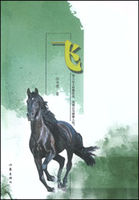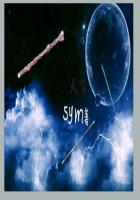One's worst enemies were necessarily those of his own trade, for, under your plan of making private profit the motive of production, a scarcity of the article he produced was what each particular producer desired. It was for his interest that no more of it should be produced than he himself could produce. To secure this consummation as far as circumstances permitted, by killing off and discouraging those engaged in his line of industry, was his constant effort. When he had killed off all he could, his policy was to combine with those he could not kill, and convert their mutual warfare into a warfare upon the public at large by cornering the market, as I believe you used to call it, and putting up prices to the highest point people would stand before going without the goods. The day dream of the nineteenth century producer was to gain absolute control of the supply of some necessity of life, so that he might keep the public at the verge of starvation, and always command famine prices for what he supplied. This, Mr. West, is what was called in the nineteenth century a system of production. I will leave it to you if it does not seem, in some of its aspects, a great deal more like a system for preventing production. Some time when we have plenty of leisure I am going to ask you to sit down with me and try to make me comprehend, as I never yet could, though I have studied the matter a great deal how such shrewd fellows as your contemporaries appear to have been in many respects ever came to entrust the business of providing for the community to a class whose interest it was to starve it. I assure you that the wonder with us is, not that the world did not get rich under such a system, but that it did not perish outright from want. This wonder increases as we go on to consider some of the other prodigious wastes that characterized it.
"Apart from the waste of labor and capital by misdirected industry, and that from the constant bloodletting of your industrial warfare, your system was liable to periodical convulsions, overwhelming alike the wise and unwise, the successful cut-throat as well as his victim. I refer to the business crises at intervals of five to ten years, which wrecked the industries of the nation, prostrating all weak enterprises and crippling the strongest, and were followed by long periods, often of many years, of so-called dull times, during which the capitalists slowly regathered their dissipated strength while the laboring classes starved and rioted. Then would ensue another brief season of prosperity, followed in turn by another crisis and the ensuing years of exhaustion. As commerce developed, making the nations mutually dependent, these crises became world-wide, while the obstinacy of the ensuing state of collapse increased with the area affected by the convulsions, and the consequent lack of rallying centres. In proportion as the industries of the world multiplied and became complex, and the volume of capital involved was increased, these business cataclysms became more frequent, till, in the latter part of the nineteenth century, there were two years of bad times to one of good, and the system of industry, never before so extended or so imposing, seemed in danger of collapsing by its own weight. After endless discussions, your economists appear by that time to have settled down to the despairing conclusion that there was no more possibility of preventing or controlling these crises than if they had been drouths or hurricanes.
It only remained to endure them as necessary evils, and when they had passed over to build up again the shattered structure of industry, as dwellers in an earthquake country keep on rebuilding their cities on the same site.
"So far as considering the causes of the trouble inherent in their industrial system, your contemporaries were certainly correct.
They were in its very basis, and must needs become more and more maleficent as the business fabric grew in size and complexity. One of these causes was the lack of any common control of the different industries, and the consequent impossibility of their orderly and coordinate development. It inevitably resulted from this lack that they were continually getting out of step with one another and out of relation with the demand.
"Of the latter there was no criterion such as organized distribution gives us, and the first notice that it had been exceeded in any group of industries was a crash of prices, bankruptcy of producers, stoppage of production, reduction of wages, or discharge of workmen. This process was constantly going on in many industries, even in what were called good times, but a crisis took place only when the industries affected were extensive. The markets then were glutted with goods, of which nobody wanted beyond a sufficiency at any price. The wages and profits of those making the glutted classes of goods being reduced or wholly stopped, their purchasing power as consumers of other classes of goods, of which there were no natural glut, was taken away, and, as a consequence, goods of which there was no natural glut became artificially glutted, till their prices also were broken down, and their makers thrown out of work and deprived of income. The crisis was by this time fairly under way, and nothing could check it till a nation's ransom had been wasted.
"A cause, also inherent in your system, which often produced and always terribly aggravated crises, was the machinery of money and credit. Money was essential when production was in many private hands, and buying and selling was necessary to secure what one wanted. It was, however, open to the obvious objection of substituting for food, clothing, and other things a merely conventional representative of them. The confusion of mind which this favored, between goods and their representative, led the way to the credit system and its prodigious illusions.















